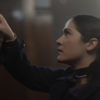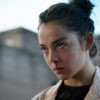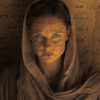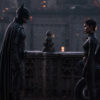One of my favourite aspects of film is how two people can watch the exact same movie and come away with entirely different viewing experiences. It is not just life experiences which shape these opinions but also what people look for in a film. I am always intrigued to find out someone’s favourite film but not only that, I want to know why that film is their favourite, over the other thousands available.
So, I decided to ask my Twitter friends to write a paragraph about their favourite film to show the variety in taste and how films resonate differently with people. Below I have included those paragraphs from all my fellow film fanatics along with their Twitter handles so you can go follow these legends. But first, let me tell you a bit about my favourite film, Pulp Fiction.
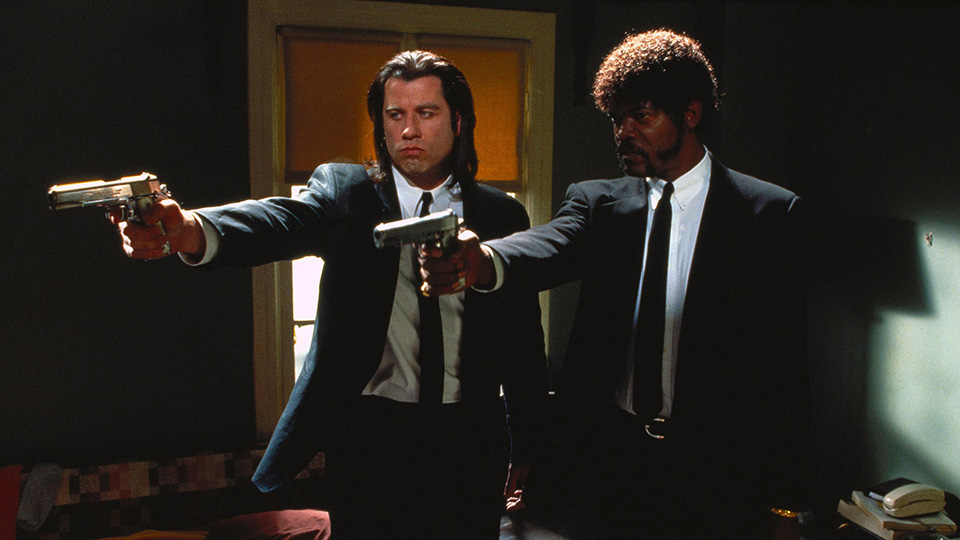
Pulp Fiction
This film completely changed how I view filmmaking and has been my favourite film for over 15 years. Before Pulp Fiction, I looked at films as a single story with a single narrative. After Pulp Fiction, I looked at films as vehicles with limitless destinations. There is more than one way to tell a story, and you can get as funky with it as you want. This is not to say that it had the wackiest story or even the most complex structure, but it was the first film I experienced where it felt like the filmmaker was really trying to do something different. Add on top the majestic performances and the roll-off-your-tongue script, and you have what I believe to be a masterpiece. Is it the best film ever made? No, I don’t think so, but because of its impact on my love for filmmaking, it will forever be my favourite.
Now let’s see what my Twitter friends think.
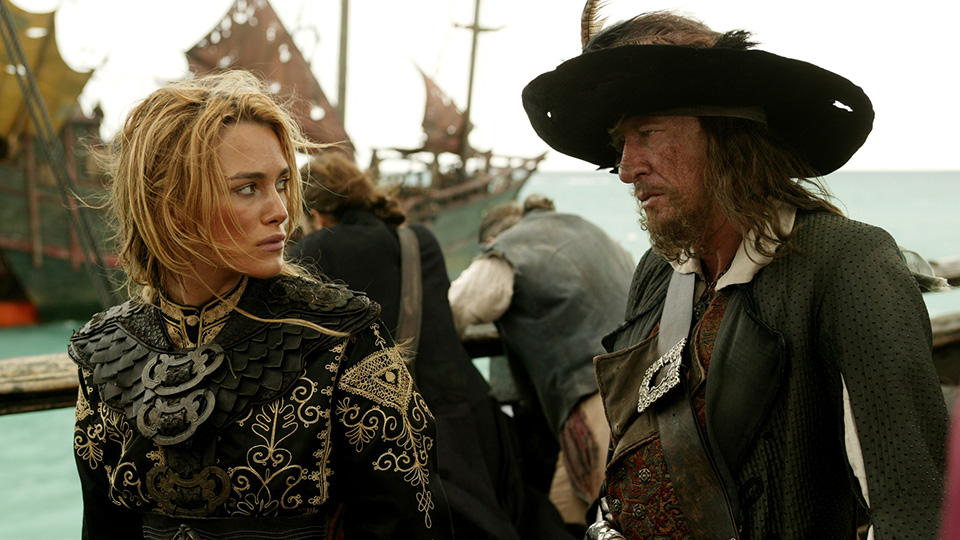
Pirates Of The Caribbean: At World’s End
My favourite film is Pirates of the Caribbean: At World’s End. It’s my favourite because it’s the film that got me to love filmmaking. I was 9 when it came out and was completely blown away by it. The final battle alone is still remarkable to this day! I remember feeling like I was actually in a massive storm at sea. It started my passion for screenwriting and video editing. It also stars my favourite trio in cinema: Jack, Will, and Elizabeth. Underrated, but the three characters I loved to see growing up. I’m still a Keira Knightley fan to this day.
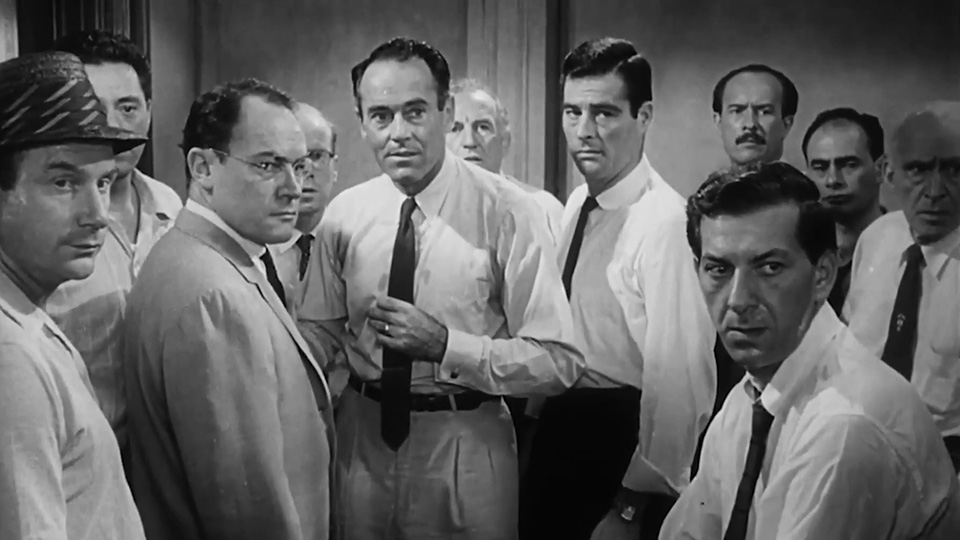
12 Angry Men
Sidney Lumet’s 12 Angry Men (1957) captivated me from its first scene, and its grip has yet to loosen. A film that takes place in a confined space, with almost entirely unnamed characters, it is a suspenseful and endlessly engaging experience with much more to offer beyond its intriguing setup. With razor-sharp dialogue, masterful mise-en-scene that is so subtle yet so effective, and complex philosophies at the forefront, there are no easy answers to the questions its characters debate. As well as a commentary on prejudice, due process, and the elusiveness of truth, it is a rigorously humanist film with consistent intensity, compelling performances, and a wealth of empathy. Even 65 years later, it still encompasses the sheer power and versatility of the cinematic medium: a rare but bona fide masterpiece and my all-time favourite film.
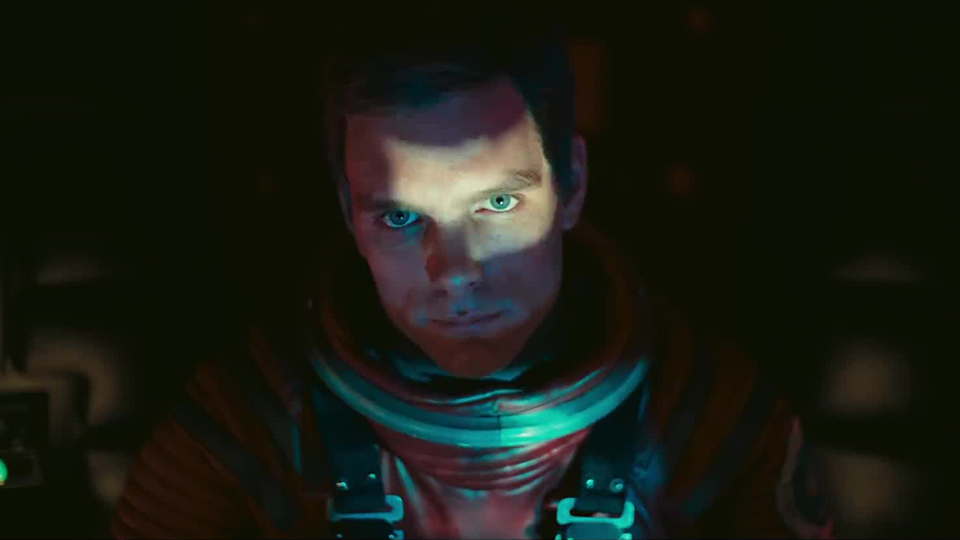
2001: A Space Odyssey
It was Autumn of 2009. I was afflicted with a particularly bad stomach bug that kept me bedridden for two weeks. My father took this opportunity to force me to watch all the “classic” films that might not interest a 13-year-old. I spent days watching 12 Angry Men, Psycho, Citizen Kane and many of the other high rollers of the IMDB, but one stood out amongst them all. 2001: A Space Odyssey changed how I watched films. I was always focused on the storytelling and asked questions beginning with “Why?” but now I was obsessed with “How?”. The inspiration for going into film journalism and an aspiration for filmmaking I owe everything to that moment hearing a distorted version of A Bicycle Built for Two and gazing into an unblinking red eye.
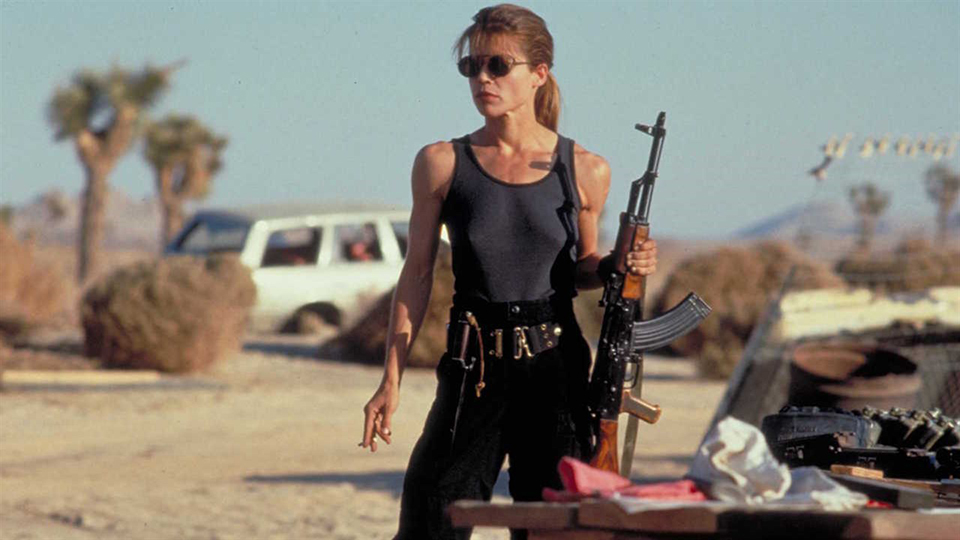
Terminator 2: Judgment Day
Back when sequels weren’t just greenlit to quickly capitalise on the first movie’s success, Terminator 2 was and still is the benchmark of what a sequel should be. James Cameron took his time and waited whilst he worked to craft his magnum opus by moving from the low-budget sci-fi/horror of the first movie to an all-out big-budget extravaganza for the long-awaited sequel. Taking literally everything that worked from the first movie and dialling it up to 10, audiences were captivated by one of the best action movies of all time and ground-breaking new special effects, which still hold up and are used sparingly and when needed. Terminator 2 is a movie that captured my imagination at a very early age is the movie that sparked my lifelong passion for science fiction, storytelling and movie making. It also still, to this day, remains my all-time favourite movie.
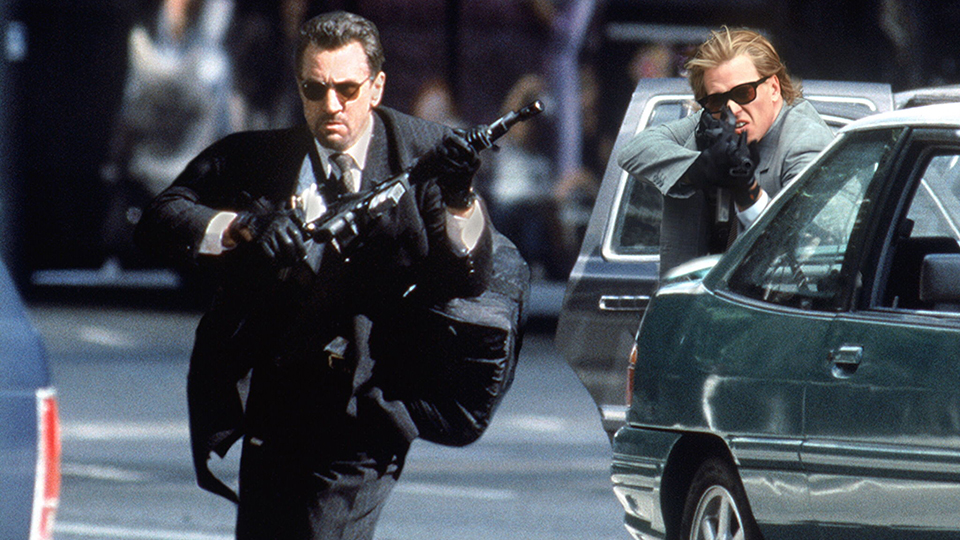
Heat
“Don’t let yourself get attached to anything you are not willing to walk out on in 30 seconds flat if you feel the heat coming around the corner.” These are the words that Neil McCauley (Robert De Niro) lives by in Michael Mann’s 1995 classic, Heat. In the ultimate game of cat and mouse, McCauley is on the run from LAPD detective Vincent Hanna (Al Pacino). Mann’s film is iconic for finally putting De Niro and Pacino on-screen together for the first time (they didn’t share any scenes in The Godfather Part II). From Pacino’s joyously hammed-up performance to the iconic shootout scene, Heat is endlessly rewatchable, and what better time to revisit the classic than on the heels of the sequel novel’s release?
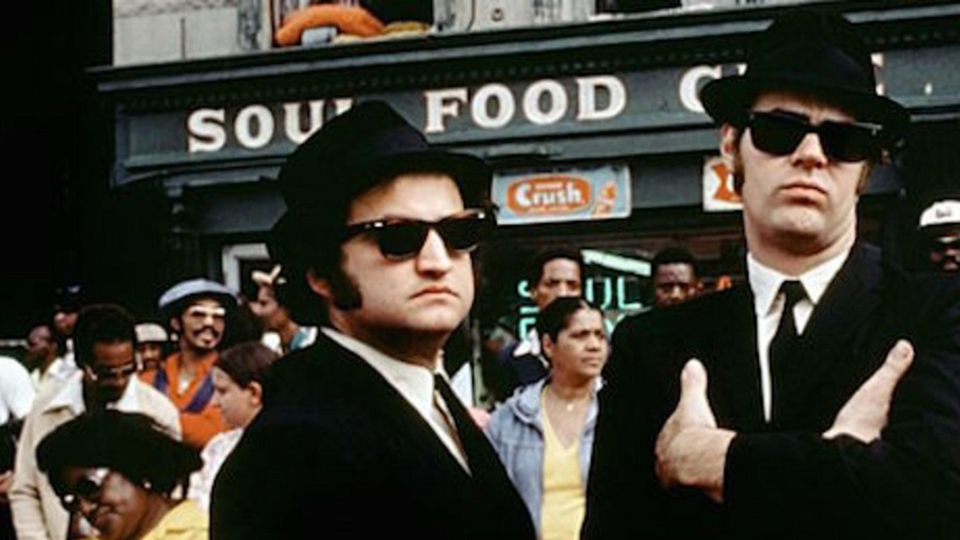
The Blues Brothers
It’s probably not the classiest of movies, but the movie I always return to is 1980’s Blue Brothers. It’s got a blues soundtrack by absolute masters of the craft, an outrageous level of random humour, and in its own way, it’s a love letter to a city I love very much. The deadpan way Belushi and Aykroyd respond to damn near every situation never fails to make me laugh. To see Aretha Franklin, Cab Calloway, and Ray Charles doing their thing is a real treat… and the sheer amount of cameo roles still is astonishing today. How does one movie combine a mission from God, a crazy car chase that held the record for most vehicles wrecked in a film, and more quotable lines than you can shake a good ole boy at? Some folks will say it doesn’t, but as sure as it’s 106 miles to Chicago, we got a full tank of gas, half a pack of cigarettes, it’s dark, and we’re wearing sunglasses… I will always hit it.
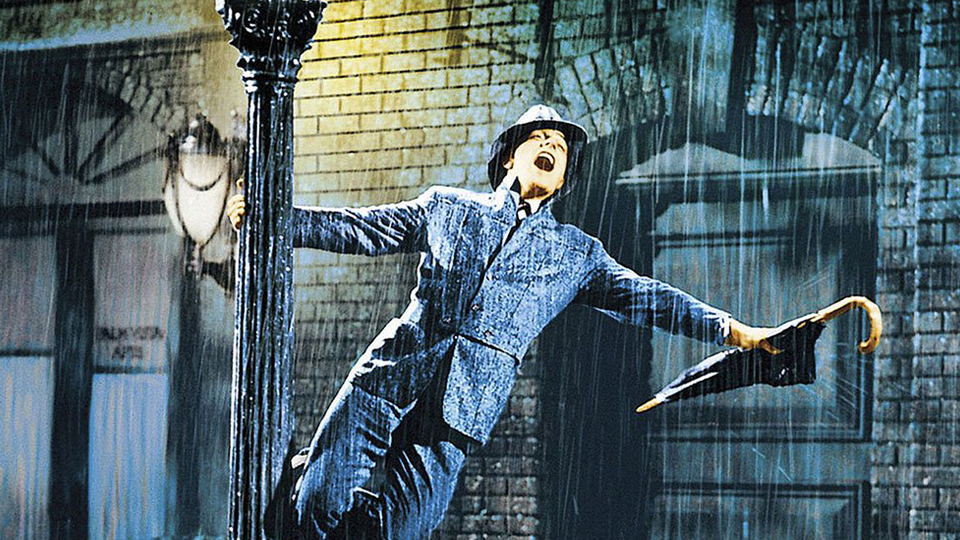
Singin’ In The Rain
For me, Gene Kelly and Stanley Donen’s Singin’ in the Rain (1952) has always been my favourite movie. My love for this film dates to when I would go over to my grandpa’s house at a young age and watch it on VHS. That memory is something I have always cherished. In addition to that memory, Singin’ in the Rain is also a masterwork: from the acting (Gene Kelly, Donald O’Connor, and Debbie Reynolds) to the gorgeous cinematography to the big musical numbers, this musical romantic-comedy stands true to this day as one of the “greatest musical movies” of all-time. The film illustrates Hollywood in the late 1920s, with the three main stars (Kelly, O’Connor, and Reynolds) portraying Hollywood entertainers caught in the middle of the transition from silent films to “talkies.” Singin’ in the Rain’s “talkies” storyline has inspired numerous films. Most recently, The Artist (2011) and Downton Abbey: A New Era (2022). Singin’ in the Rain is a glossy and glamorous musical with bright colours, a romantic story, and top-notch dancing/musical numbers. Kelly and Donen’s picture has proven to be a classic over the years. In the end, a classic that will always be in my heart.
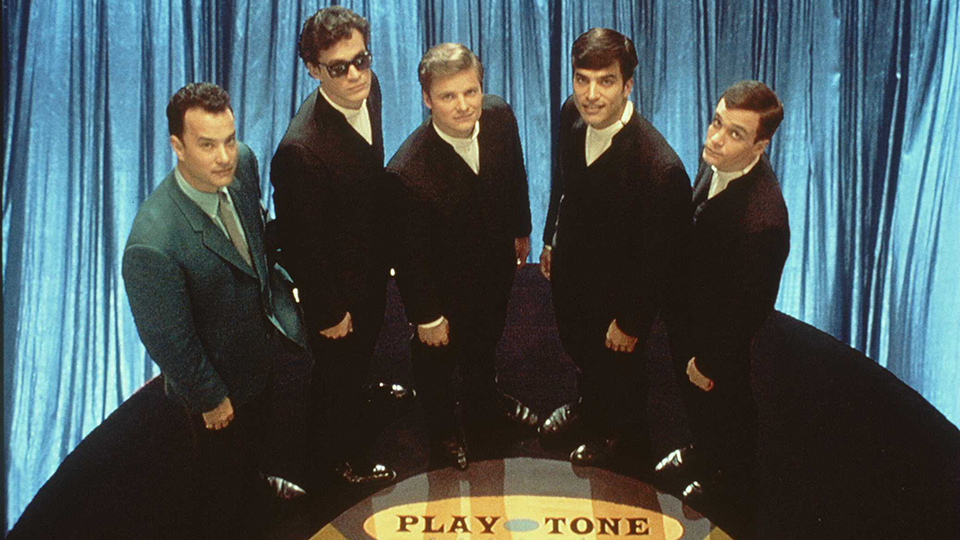
That Thing You Do!
@dan_critic (thegoodsreviews.com)
Audiences best know Tom Hanks as “America’s Dad,” a welcoming, sterling acting presence in dozens of films across four decades. But Hanks has sat in the director’s chair for two feature films, one of which is my favourite movie ever: 1996’s That Thing You Do!, with Hanks as the writer and co-star. The film documents the rise and fall of a one-hit-wonder band from Erie, Pennsylvania, in the late 1960s. Everything about the movie is affectionate and polished, from a screenplay that hums with understated humour, to terrific backstage period details, to warm, colourful direction by Hanks. The cast is filled with underrated comedy actors (Steve Zahn, Ethan Embry) and blink-and-you-miss-them cameos (Bryan Cranston as an astronaut, Chris Isaak as a recording studio technician). What really sustains the film is the soundtrack: The title track is one of the best songs ever written for a movie, composed by the late genius Adam Schlesinger. It accompanies an entirely constructed fictional words of ’60s pop via the fake record label Playtone, subsequently adopted by Hanks’ production company. The film is a big warm hug, generous without cloying, hilarious and infinitely quotable (“if Jimmy’s a genius, I’m U Thant”), putting me in a good mood no matter the circumstances. Just be sure to track down the 108-minute theatrical cut; the director’s cut adds 40 minutes that slow the film’s brisk pace.
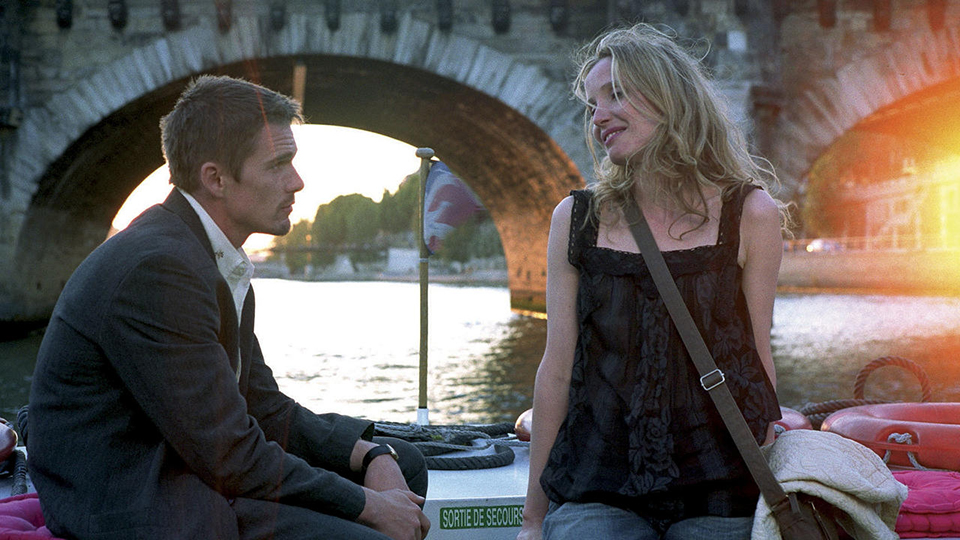
Before Sunset
In Before Sunrise (1995), Celine (Julie Delpy) and Jesse (Ethan Hawke) vow to meet 6 months after their initial romantic encounter in Vienna. Nine years later, we finally find out whether or not they did. Before Sunset (2004) is my favourite film of all time simply because its mere existence is something of a miracle. Catching up with two loquacious, intelligent, and fluid adults is something we seldom get to do in a film. Most films are one-and-done instalments, introducing us to vapid or inane characters who we rejoice in the fact that they’re fictional, understanding that this way, they’ll never be able to procreate. Here is a sequel of ideas, giving us access to two people who are almost too beautiful to be real. It’s a walk-and-talk-a-thon as we catch up with what has happened with these characters in the nine-year interim since the first film. Essentially, I see myself in these people. Or, rather, I see what I hope is the best of myself in these people. As the film approaches its ending – somehow the most haunting, erotic and sublime ending in all of cinema – it’s interesting to see that the film has somehow evolved from a romance to a thriller, as the limited time all but asphyxiates the characters into a decision which left my theatre audibly agape when I initially saw it in the summer of 2004. I often say that films like this are spiritual nourishment. If movie theatres are my church, Before Sunset is my communion.
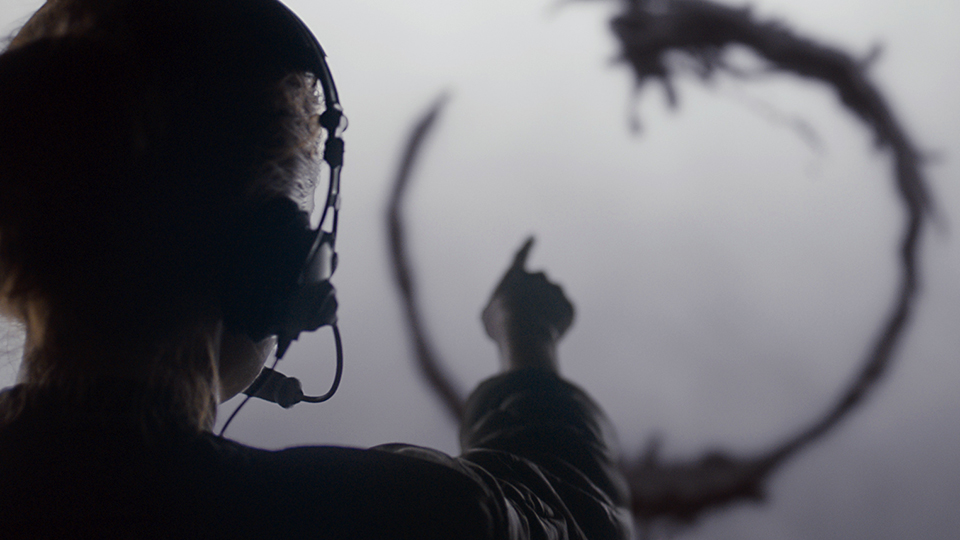
Arrival
Where to start with Arrival? The film, adapted from Ted Chiang’s excellent short story ‘Story of Your Life’, is a beautiful, haunting, and firmly optimistic science fiction film, taking tropes from the disaster genre and turning them inside out. Think about Steven Spielberg’s War of the Worlds for a second. Now, imagine it didn’t fall apart in the third act, add about 94% more introspection and subtlety and a truly excellent twist, and you come somewhere close to Arrival. In that twist, the film sets itself apart and rises above sheer spectacle. Sometimes twists can be unsatisfying and can cause a film to collapse under its own weight. Arrival, however, has the perfect kind of twist: one that unravels before your eyes and enriches subsequent viewings rather than detracting from them. From the performances to the cinematography to the score, Arrival is a monumental piece of filmmaking in every regard and is undoubtedly Denis Villeneuve’s greatest achievement. If there’s a better science fiction film out there, I don’t want to know about it.
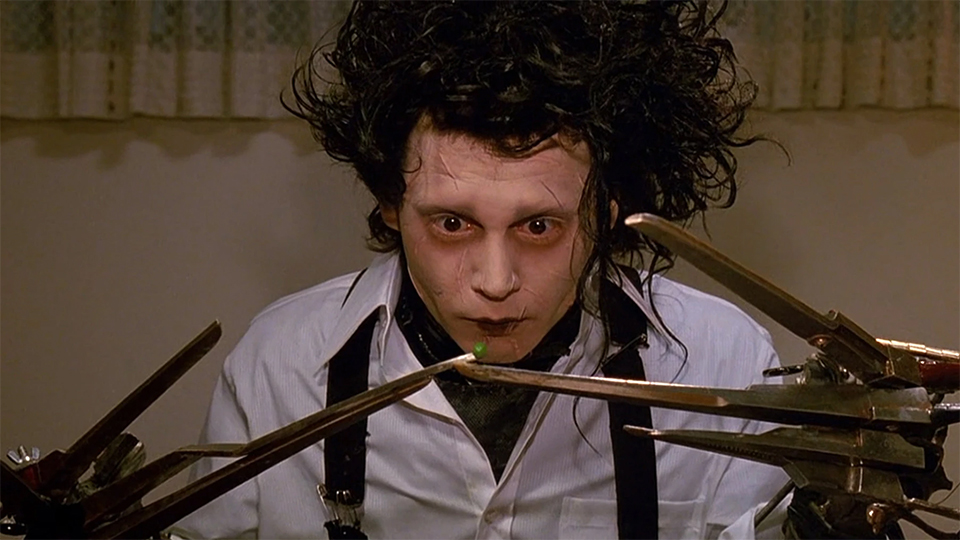
Edward Scissorhands
I’ve always been drawn to stories about otherness, and if it can be classified as ‘weird,’ all the better. Edward Scissorhands is both those things, and what’s more is that it has a combination of emotional intensity, darkness and light that cements my love for it. In all my years of obsessing over film, nothing has made my heart swell more positively than Edward Scissorhands. Its music and scenery, especially the latter, are like no other.
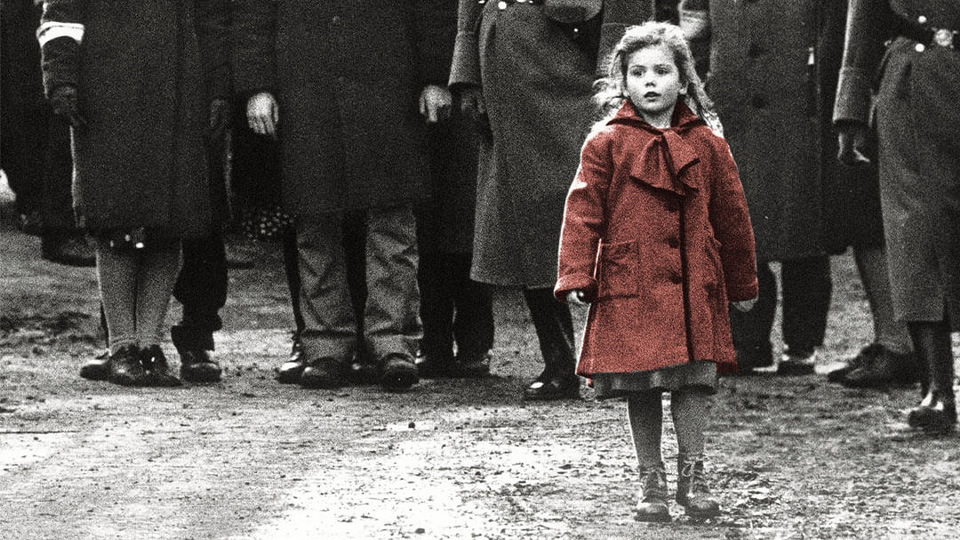
Schindler’s List
I’ve always been a weird outlier on favourite movies, as people talk about things like Star Wars or Avengers Endgame or even The Shawshank Redemption being their favourite (and yes, Shawshank is a favourite of mine. One film has always been important to me in terms of my favourite film. Now you’re thinking, what is that film and well, it has and probably will always be Schindler’s List. I’ve seen this movie three times throughout my life. The first time was a rough time watching it because it was such a difficult and disturbing movie, and I was like 15, so I didn’t appreciate it. The Next time was about five years later, and the last time was when it returned to theatres. Now with that said, this movie, in its three times viewing, has shaped my view of filmmaking more than any other film. It’s one of the most important films to me because it’s honest and doesn’t hold anything back. You feel every breath of it, every inch of it and feel changed after watching it. Steven Spielberg is one of the most important filmmakers for a reason, and it shows in this film alone. From the black and white photography to the music, to the little girl in the red coat, to the stunning depiction of the holocaust. It’s not a movie that everyone can sit through because of what it does and how it’s acted, but it’s one of the most important movies ever made and will never be removed as my all-time favourite movie.
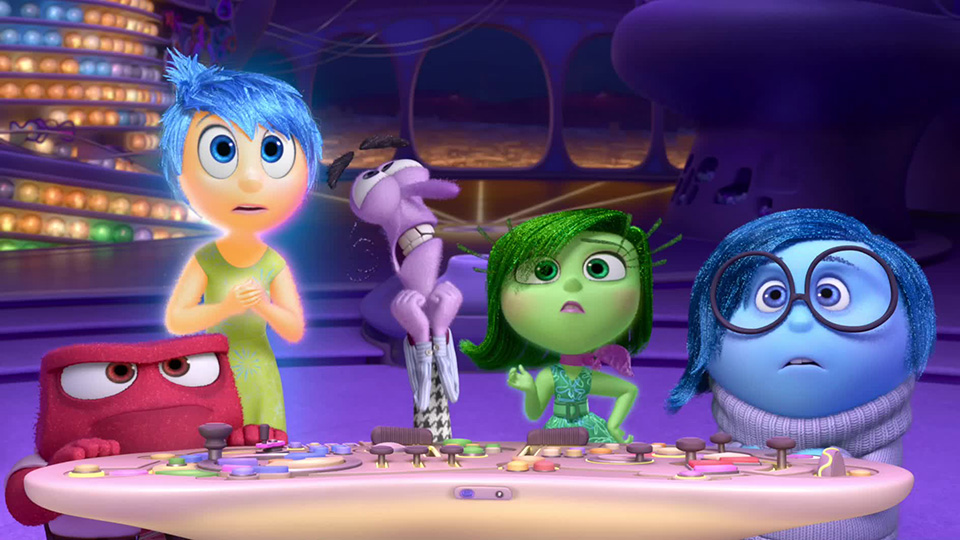
Inside Out
Mental health has long since been a contentious subject in the film industry, especially in family and kids’ films (Even though they weren’t afraid to deal with adult themes, mental health often took a back seat). So, when Disney Pixar’s Inside Out came around in 2015, it really pushed the envelope. Pixar, frequently a studio to break philosophical and technological boundaries, offered a feature film based on prevailing human emotions and memories. The most special thing about the narrative is that it taught the audience that happiness doesn’t have to be your dominant emotion, and feeling how you feel at any given point is entirely valid. Watching this as an 18-year-old, I felt as though I’d learnt more about myself, my feelings, and my mental health in that 100 minutes than I had over 12 years in state education. On top of this, it has some of Pixar’s best-looking animation and characters (I’m looking at you, Bing Bong). All underpinned by Michael Giacchino’s impeccable score, Inside Out truly is a masterpiece of not only the 21st century but of all time.
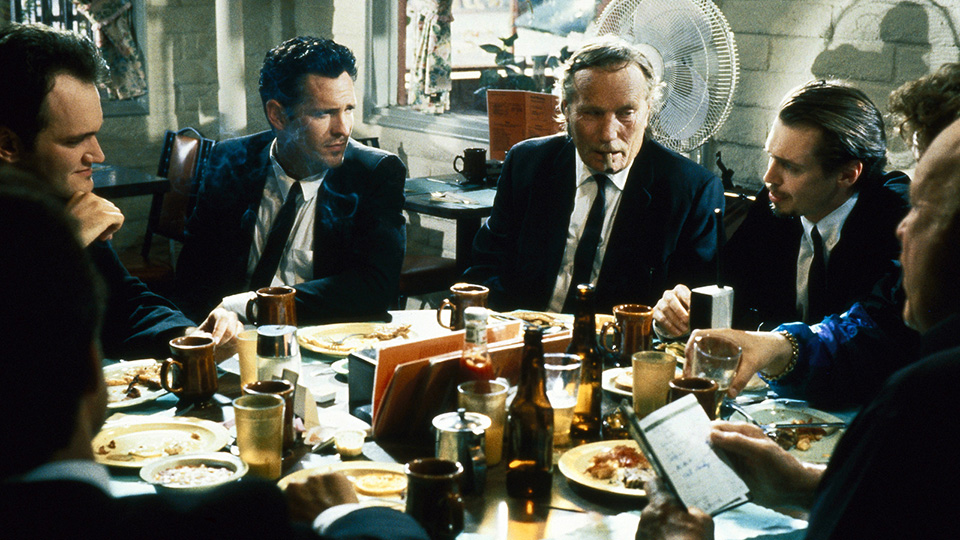
Reservoir Dogs
Eight men sit around a restaurant table; they mindlessly ramble about music tastes, old relationships, and cultural etiquette, all in the service of asserting their sense of status within a group where no one can know each others’ real names. This brief prologue often referred to as one of the best opening scenes in cinema, only lives up to this status when contrasted with the 90 minutes of paranoid hell that follow. These nameless men are lost and stranded after a botched robbery, with the growing tension of betrayal turning these already awful men into the even worse versions of themselves. This highly tense spectacle of bleeding torsos, severed limbs, gasoline, Mexican stand-offs, and 70’s classic rock was the world’s introduction to writer/director Quentin Tarantino, whose stamp on the film world is as influential as it is omnipresent. Where many of his imitators try to capture the specific language of his dialogue, Tarantino is willing to let his characters be flawed, be proud of their flaws, speak freely about their flaws, and then suffer the consequences of those flaws. In the end, there is no honour among thieves, only betrayal orchestrated by the world’s smallest violin.
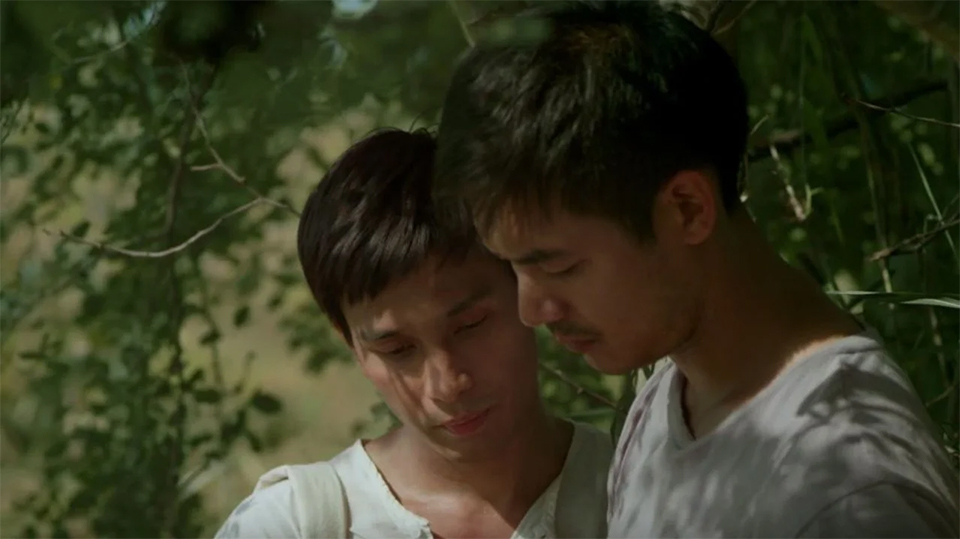
Malila: The Farewell Flower
Malila: The Farewell Flower is my favourite film because it’s a haunting yet poetic piece on love, life, death and grief. I was moved by how the film was able to become a cathartic and meditative journey of healing and saying goodbye, and the love story was really touching, being a queer man myself. Malila: The Farewell Flower came into my life during a period of great grief and sadness. This film perfectly captured how I felt. It showed me that love transcends the body and continues on to the next life, but it still lingers with those impacted.
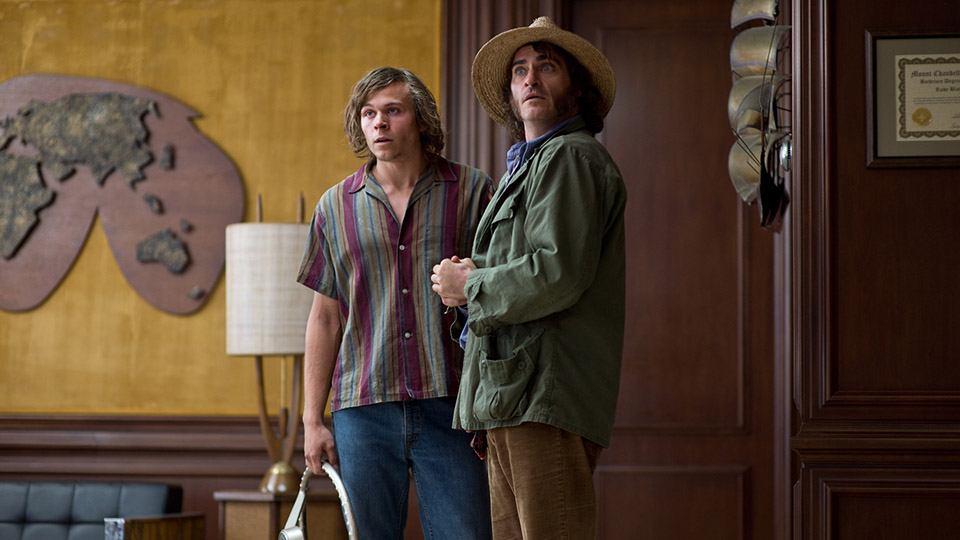
Inherent Vice
Understanding what makes a film innately your favourite can be complex; it’s more than just the story, or the cast or score, although when these elements are great, it definitely helps. For me, it’s all about the impact it leaves on you, whether on first or after multiple watches. A favourite movie should comfort and excite in equal measure, and no film does that to me quite like Paul Thomas Anderson’s Inherent Vice. It’s a hazy heartbreak movie set in L.A. circa 1970, helmed by one of contemporary cinema’s true masters. Comfortable as a comedy, excelling as a nebulous noir, and more than happy to punch you right in the feels. Inherent Vice works on virtually every front but perhaps what sums it up best, and maybe why I gravitate towards it, is that it evokes the elusively feeling of uncompromising, incomprehensible love and deals with what happens when that feeling has faded past the point of no return. It’s beyond apt that a Neil Young song scores the stand-out musical moment. Bittersweet and beautiful, Inherent Vice’s flaws are front and centre, but its tenderness and rewatchability keep you coming back, just like you’re revisiting that moment long since forgotten, journeying through the past.

Hyènes
My favorite movie is Hyènes (Hyenas) directed by Djibril Diop Mambety. The film is an adaptation of Friedrich Dürrenmatt’s The Visit, an absurdist Swiss play set after WWII. Mambety adapts the play to 1980s Senegal during the height of IMF and World Bank structural adjustment: i.e., the auctioning off of public lands and utilities to foreign private interests under the guise of “development.” The film demonstrates how greed and individual interests destroy communities, turning everyone into Hyenas, willing to sacrifice their humanity and community to pursue lines of credit. At the movie’s end, development is revealed as destruction: total cannibalisation of the self. Ultimately, the short-term promise of riches was just another guise to steal all the remaining wealth within the community. Despite doing Ramatou’s (a stand-in for the World Bank’s) bidding, the villagers end up more destitute than before.
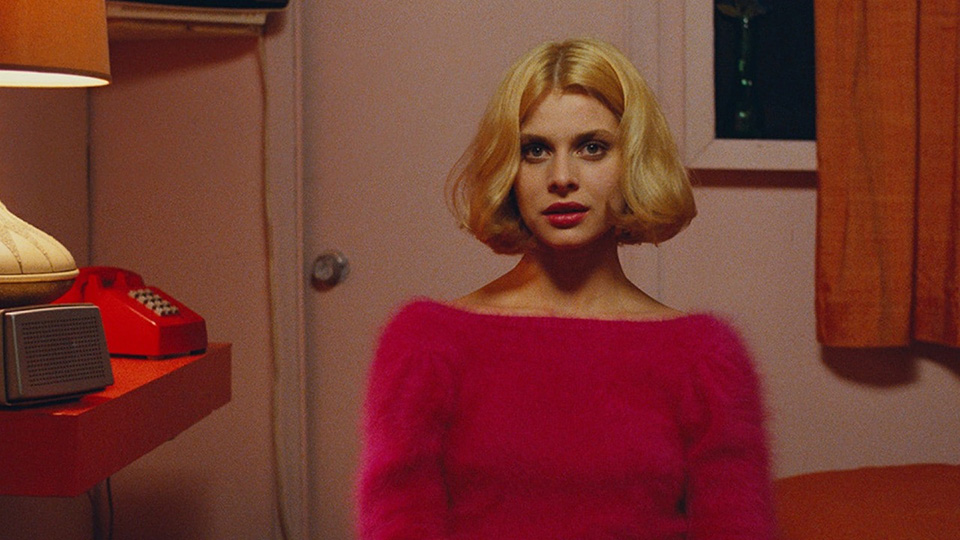
Paris, Texas
I have said for years that this was my all-time favourite movie, and I was recently asked to explain why. PT is the introvert’s Godfather. Travis’s story is a battle between being an utterly nondescript everyman and a sensitive, deeply-layered human being. Early in the movie, he’s at the extreme of isolation and seclusion. Harry Dean Stanton being the actor he is — can embody the archetypal common man while at the same time revealing rich depths of humanity in how he speaks and in his soulful eyes. And so the remembered love story is believable – you can imagine how one of the most beautiful women in the world at the time (N. Kinksi) might find something to fall in love with him. But given how outwardly unremarkable Travis is, it’s also not hard to imagine the story of pathological and catastrophic jealousy that unfolds between them. Apparently, Kurt Cobain was a big fan too.
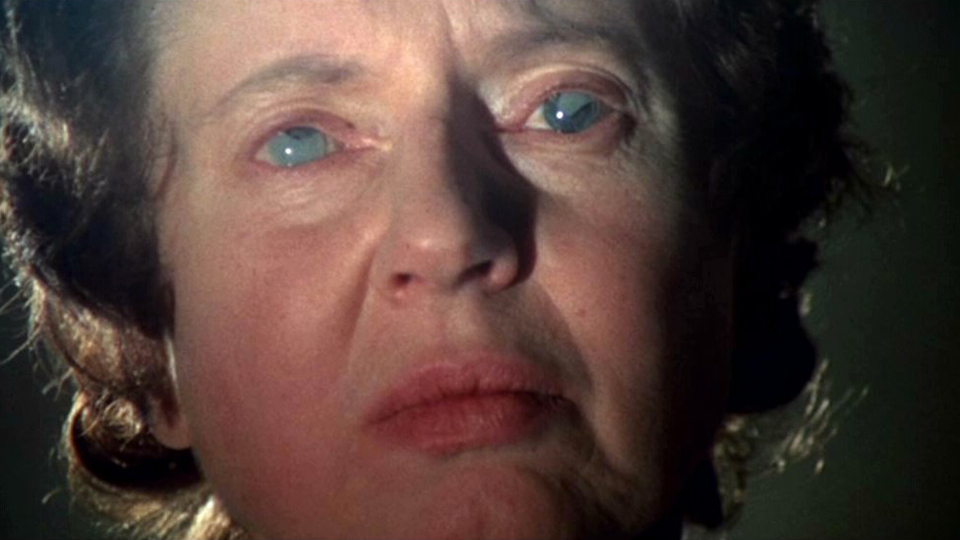
Don’t Look Now
Innovative in its aesthetics yet subliminal in its thematics, Don’t Look Now is an extraordinary piece of horror cinema that offers a different emotional flavour of the genre compared to its fellow supernatural counterparts of the period. Focusing on the narrative of trauma, Nicolas Roeg’s 1973 adaptation of Daphne Du Maurier’s short story of the same name explores the psychological effects of grief as bereaved couple John and Laura (Donald Sutherland and Julie Christie in career-defining performances) take a timely trip to Venice following the sudden death of their daughter Christie, who drowned in their garden pond. As Laura encounters two elder sisters, one of whom claims to be psychic, informing her that Christie is trying to establish contact from beyond the grave. While John experiences mysterious sightings of a red-coated figure uncanny to her daughter. The film’s non-linear storytelling, through elliptical editing and recurring motifs, enact visual manifestations of the couple’s bereavement and distorted experience of remembering past traumas, subsequently altering our perception of events. Upon its initial release, Don’t Look Now received a warm reception, not least due to an explicit sex scene which embroiled the film and its stars into censorship controversy that lasted into this century. But upon numerous re-evaluations since, Roeg’s devastating masterpiece is reputed as an influential British horror classic.
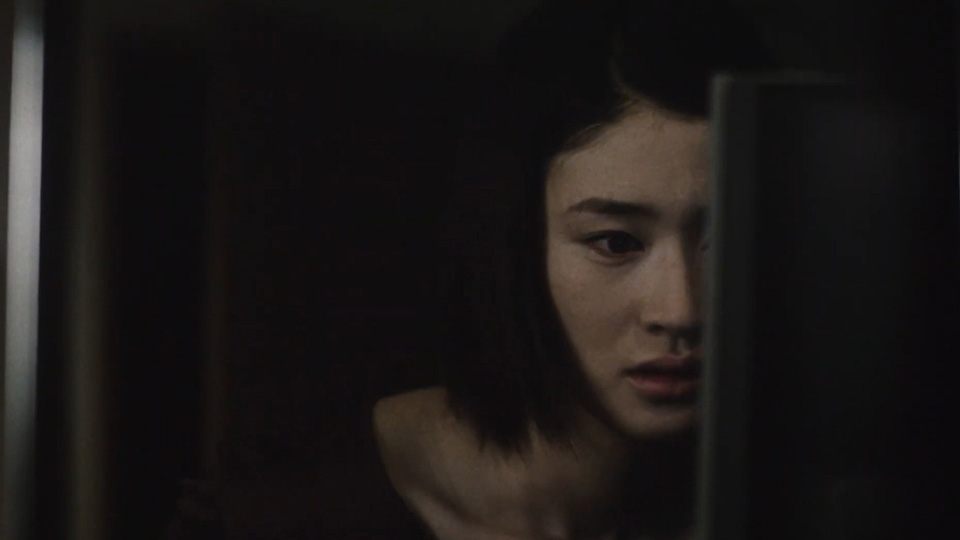
Pulse
[dial-up sound ends] Good, you’re connected… but to what, exactly? Kiyoshi Kurosawa has a nightmarish answer for that in 2001 when he deems logging onto the internet means providing a gateway for ghosts to come over. Kairo (Pulse) ’s recognition has long been around its sizable fear factor—that hallway lady!—but some room should also be made there for its “third eye” on the erosion of society’s ability to truly connect with each other. Who are the real ghosts here, then? Those who lurk in shadowy corners, or those content with seeing silhouettes as people from the corner of their rooms? Since the Wes Craven-produced 2006 remake hasn’t the bandwidth to prompt these questions, unlike its predecessor, it doesn’t get to grow with time, to avoid being red-taped, or to find happiness within the last viewer in the world.
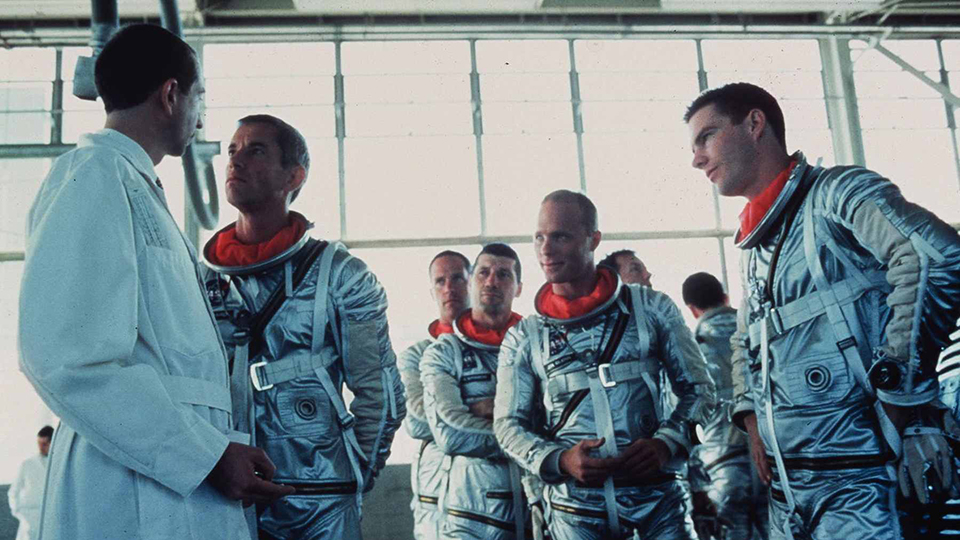
The Right Stuff
My favourite film of all time is hands down The Right Stuff, directed by Philip Kaufman. There’s no contest. I’ve seen the film thousands of times since I was a little three-year-old. I wore out the 2 VHS set it came in. Why do I love the film? It’s a gorgeous film, for one. It’s got one of the most stacked casts, which would go on to be legends. Who is in it? Ed Harris, Jeff Goldblum, Dennis Quaid, Scott Glenn, Sam Shepard, Donald Moffat and Fred Ward. It’s about what we can do when we all come together. There’s a sense of the macho with the men it puts at the centre, but there’s also vulnerability. That comes out super well with Sam Shepard’s portrayal of Chuck Yeager, who was the first person to break the sound barrier. This film is an EPIC to me. It grips you from the first narration line, “There’s a demon that lives in the air”, to the last line, which is a narration. Three hours and it never lets your focus go one inch. The film made me want to be an Astronaut, and that morphed into bringing about the love I have for movies. I’m now living that dream, working on movies in Atlanta. This set me up for this path, and I love the film even more for that.
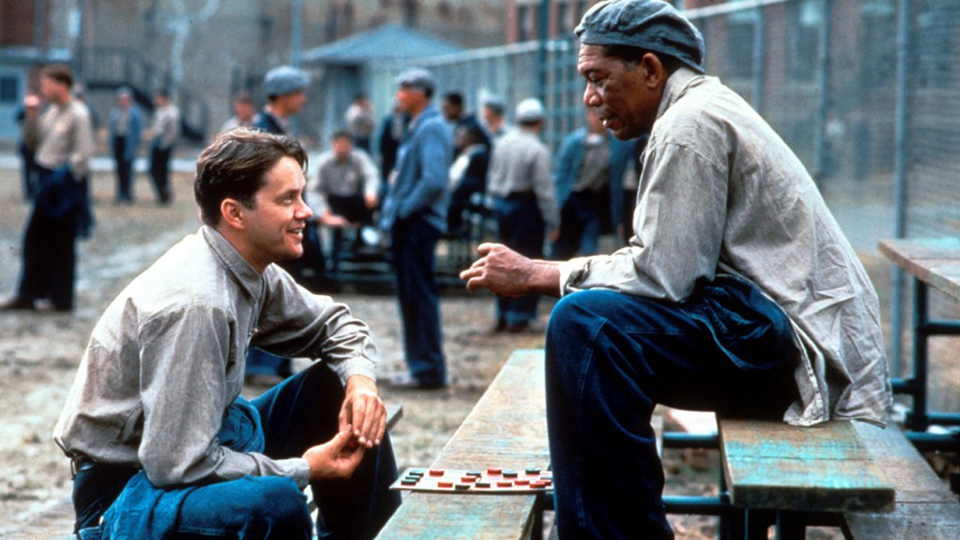
The Shawshank Redemption
My favourite film is The Shawshank Redemption. I rented this film back in the 90s when I was going through some teen depression. Nothing serious, even though it might’ve felt like it back then. I think that it is a wonderful film in pretty much every aspect, from direction to performances and everything in between, but the thing is that the film’s message of hope and patience in the face of adversity and insurmountable odds really resonated with me. That line of “get busy living or get busy dying” has become a sort of mantra in my life as I try to make the best out of any situation that might come my way. So even when I’ve gone through numerous serious situations throughout my life, I always try to remember that hope is a good thing, maybe the best of things, so I keep moving on with that in mind.
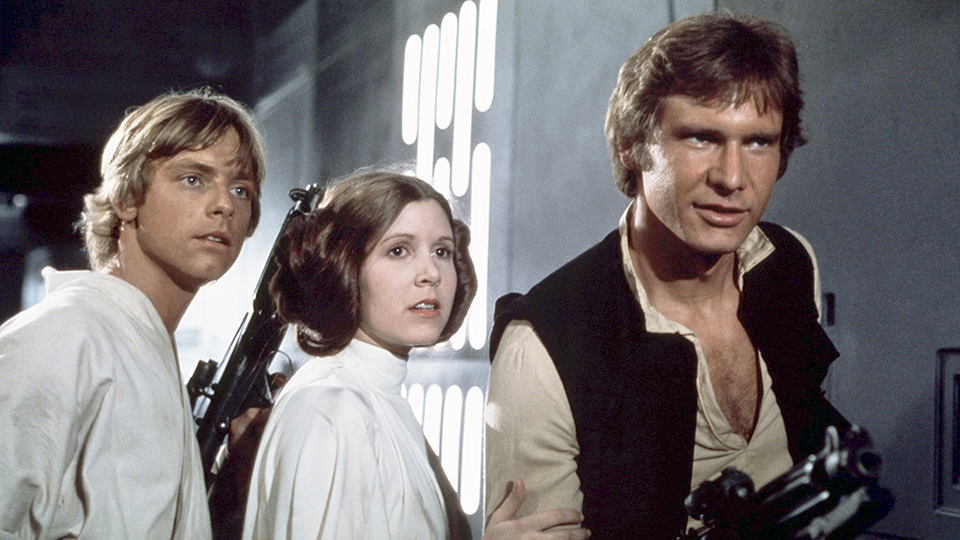
Star Wars
Star Wars has given me so much. It has given me my love of movies, my love of practical effects and the love of great storytelling. I first saw Star Wars when I was five at a tiny cinema with my parents, who saw it when it came out in 1977. It blew my mind and has stuck with me for years now. I also love the idea that it’s a story that is timeless, the story of good vs evil, right and wrong, and freedom vs authoritarianism. It came out at the right moment when the United States was coming out of Watergate, the war in Vietnam and the subsequent division that came from that, and it gave people hope when there was none. It’s a movie that I can watch again and again and again and never get tired of it because it can bring me joy when it seems all is lost.
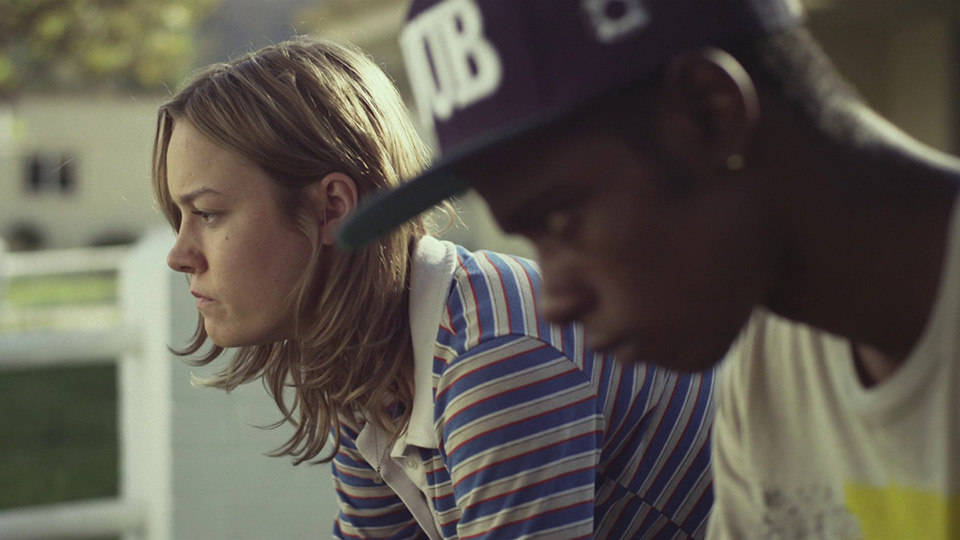
Short Term 12
On the 24th of May 2020, I decided to sit down and watch Short Term 12 (2013) d. Destin Daniel Cretton and a simple choice to kill some time during lockdown became one of the most profound cinematic experiences of my life. A film that beautifully weaves and tells a rich, complex and nuanced story about troubled youth and the industry that provides them with care and support, a topic so important and often gravely misrepresented or exploited by the media and, even worse, on occasion, society. I was truly in awe and mesmerised by what unfolded in front of me as I watched this film and especially by the fact that it did so much in about merely 90 odd minutes. The humanity, understanding and empathy that Cretton shows through his writing and the characters, especially Grace (played exceptionally by Brie Larson), was like a lightning bolt that struck me right in my soul and is something I believe should be witnessed and practised out in real life. The stories of these characters felt so authentically presented, which was helped by the brilliant performances of the cast. It had such an impact on me that I eventually went and pursued a career as a support worker for vulnerable young adults, and as of 18th August 2022, I have worked a year in the support work industry. It has truly been one of the most emotionally fulfilling and spiritually enriching experiences of my life, and I would not have taken on this path had it not been for me watching Short Term 12 that one afternoon in May. Films and especially stories like these prove just how much these topics need to be represented and given a voice and spotlight to and how independent films matter because of the sheer lack of restraint in which they deal with the human condition. I truly and wholeheartedly believe that this film is not just essential viewing for purposes of cinema but for humanity as well. Therefore Short Term 12 is one of my favourite films of all time.
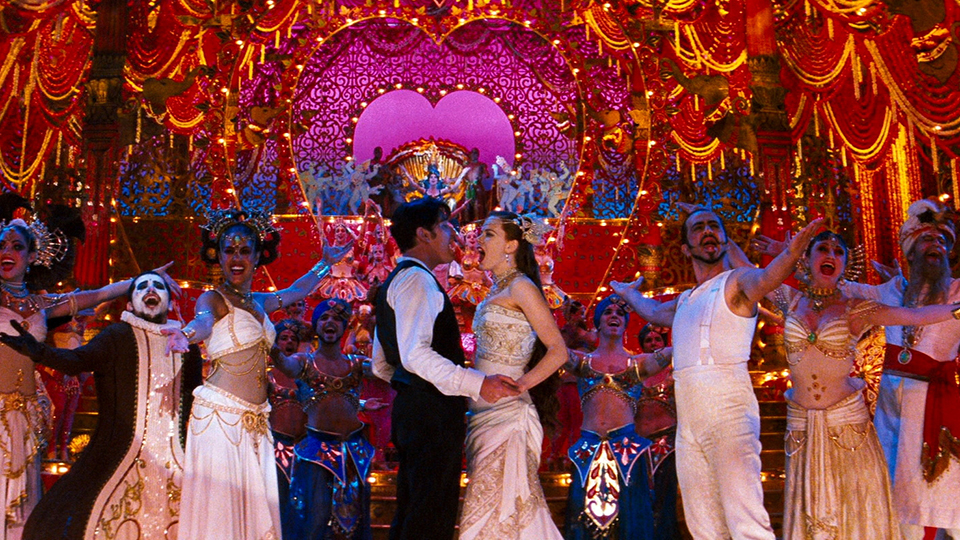
Moulin Rouge!
No one has ever accused Baz Luhrmann of being subtle, and this OTT musical is probably an acquired taste. Tragedy, love, and sparkles are thrown in your face with this jukebox musical with a twist. It continues to be one of the most dazzling musical movies made in a decade where the art of extravagance was a dying breed. Moulin Rouge! is a tragic love story of Nicole Kidman’s showgirl Satine and penniless yet idealistic poet Christian (played by Ewan McGregor), soundtracked by a mash-up and retelling of classic 20th-century hits. From David Bowie to Elton John, T.Rex to Nirvana and The Police, unlike the cheesy jukebox musicals that followed, there is a glint in the eye of the cheesy bouncing between musical set pieces. Luhrmann’s Moulin Rouge! is painted with such broad strokes it gets away with the unimaginable. Kylie Minogue as a green fairy voiced by Ozzy Osbourne, a can-can to Smells Like Teen Spirit, a tango version of The Police’s Roxanne. All terrible on paper, but yet have become iconic in film history within just two decades. Every second and every frame is filled with anachronistic sparkle, charismatic performances and intricate costumes. This dazzling pop/rock opera has only improved with age, its brash Vegas spectacle continuing to be an anecdote for the dreariness of life. Despite the tear-jerking ending, Moulin Rouge! is a warm hug of a movie which will help you believe in beauty, love and freedom for an hour or two.
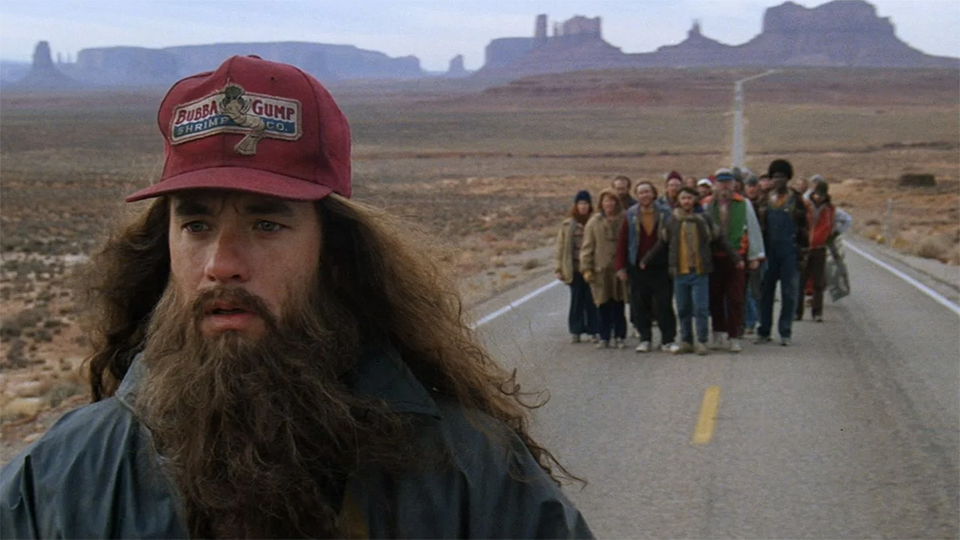
Forrest Gump
A feather gliding ever so delicately through the wind, to Alan Silvestri’s soothing tune in the background, it wafts in the air, seemingly void of purpose or direction at first, until it lands perched at the feet of a man seated on a park-side bench, a man we would soon come to know as — Forrest Gump. This symbolic opening sets the stage for what I consider my favourite film. Forrest Gump runs for a total of 2h 22m. In that runtime, we watch him grow up as — the ultimate underdog, mentally challenged, suffering from a speech impediment, ridiculed and mocked by his mates, held back in school (well, almost), and unable to pick up social conventions & cues, in short Forrest was not dealt the best of hands in life yet he was somehow was able to turn his bad fortune around. Despite his childlike naiveté and simple-mindedness, or maybe because of it, Forrest was able to pave his own way. Finding himself in pivotal moments in American history, his honest and good-naturedness shone through. He wore his heart on his sleeve, never afraid to show affection — his vulnerability was his strength. Though we are reminded that the world is unjust and prejudiced by how Forrest is treated, we can look to Forrest and take solace in his’ bright-eyed and bushy-tailed’ view of the world. He continues on with endearing juvenile wonder. In the end, what makes this movie special to me is the lesson that it leaves you with —it imparts to us that life is ultimately our own, we all will be dealt bad hands, and there may be more downs than there are ups, but what we do with it is entirely up to us. It tells us that despite all the beat-downs life gives us — it is entirely well within our means to get up, grab life by its horns and RUN FORREST RUN!
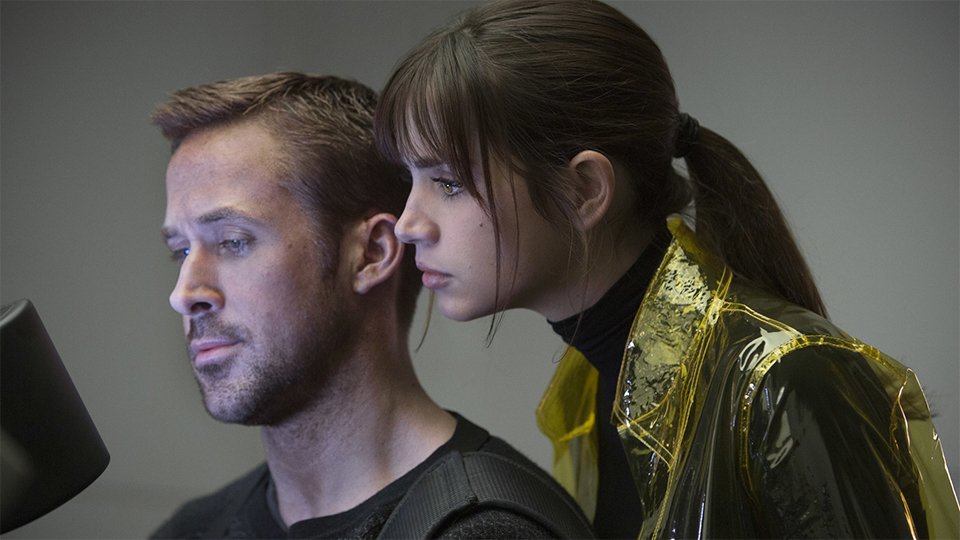
Blade Runner 2049
I’m a fickle person, so if you asked me my favourite film in a week, it might be something different. Still, my knee-jerk response always tends to be Denis Villeneuve’s belated sequel to Ridley Scott’s Blade Runner that nobody asked for, nobody wanted, and (relative to its budget) nobody saw. The latter might even be the reason I love it so much. I remember the first time I saw this movie so vividly. The theatre was dead aside from perhaps three other people, and my partner was asleep within the first twenty minutes—no rustle of popcorn, no slurping of cups, no whispering or talking. I was utterly swallowed up by the visuals and the mood, transported to a world where no one would want to live. I could practically taste it. 2049 doesn’t have a groundbreaking story, but the way Villeneuve and co present that story elevates the material to something so much more significant than a belated sequel to an untouchable classic ever had any right to be.
As you can see from all these wonderful and different film choices, people’s opinions vary. Film is such an amazing medium that has done wonders for my life and so many more. I would suggest checking out all the films mentioned because who knows, you may be yet to find your favourite film. Experiencing different types of film is something I have been actively doing over the past few years, and I have come across some absolute gems. Whilst every film may not be for everyone, every film is for someone.



